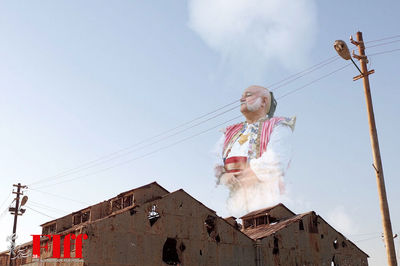The film has its Iranian premiere during the 38th Fajr International Film Festival on Saturday.
It tells the story of a genie that has to compose a melody with help from four humans otherwise he would be expelled from the solar system for eternity.
Speaking in a press conference, Ahmadzadeh said, “Sometimes, one thinks that he/she should thank some people in any way as possible for example, by writing a story, drawing a painting, or making a film.”
“This film was made to show our appreciation for the long service provided by Ms. Tsuya for our people who have been injured in the chemical attacks during the war.”
Ahmadzadeh said that he could barely convince Tsuya for making the film as she didn’t want to be the central theme of the movie. However, she agreed on the condition that the film would not focus on her in its story, as well as that it would provide moral lessons for all.
Tsuya also attended the press conference through an online video call.
“I’m not a special person and I’ve also not done any special thing,” said Tsuya who is a physician and president of the MOCT Association of Hiroshima.
She has collaborated with Iran’s Society for Chemical Weapons Victims Support (SCWVS) for 16 years.
“I suppose that when one sees other people are suffering in pain, he/she should do something as far as possible. I saw the people injured by chemical warfare, therefore I helped them and it was the least I could do. It was not necessary to be shown anywhere, but Iranian friends were insistent about making the film,” she added.
Tsuya is the author of the book “With Iranians Injured by Chemical Weapons” that recounts her endeavors for treating Iranian people suffering from chemical weapon injuries.
Iran was subjected to several violent attacks with chemical weapons by Iraq during the 1980-1988 Iran-Iraq war.
According to an article by Tsuya, during the war, about 6,000 Iranians were killed during the attacks and today, about 55,000 survivors of these attacks are still suffering from the aftereffects.
In the Sardasht bombardment in West Azerbaijan Province on June 28, 1987 alone, poison gas killed over 1,000 and injured over 8,000 civilians, many of whom were permanently disabled.
Source:Tehran Times

